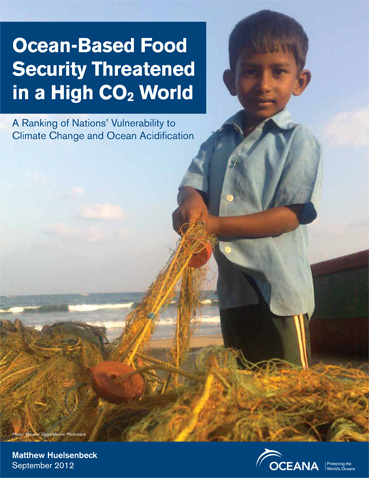 oceana.org - September 24, 2012
oceana.org - September 24, 2012
Emissions from human activities are changing the ocean’s chemistry and temperature in ways that threaten the livelihoods of those who depend on fish and seafood for all or part of their diets. The changes may reduce the amount of wild caught seafood that can be supplied by the oceans and also redistribute species, changing the locations at which seafood can be caught and creating instability for ocean-based food security, or seafood security. This report ranks nations based on the seafood security hardships they may experience by the middle of this century due to changing ocean conditions from climate change and ocean acidification. This is done by combining each nation’s exposure to climate change and ocean acidification, its dependence on and consumption of fish and seafood and its level of adaptive capacity based on several socioeconomic factors. Country rankings are developed for risks from climate change and ocean acidification independently, as well as from both problems combined.
Problem, Solution, SitRep, or ?:
Recent Comments